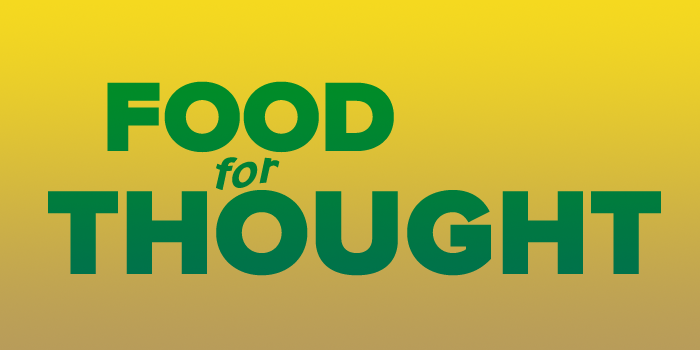True story. I was having dinner with friends and recounting a story that took place before the turn of the millennium. It involved trying to fix something that broke in my rented apartment. Back then I lived in a place where maintenance was a real problem so I fixed a lot of stuff myself.
My friends, a bit younger than I, were unimpressed by my amazing repair prowess. This was until someone said, “And that was before YouTube!” All of a sudden I was the star of the show. I was super-repair-guy. I possessed the magic power to actually do things without looking at a video. Amazing!
This got me to thinking. In just 20 years, have we become so dependent on YouTube that we can’t do anything without it? Is it now impossible to do anything without watching someone else do it first? I’ll admit that just recently I replaced one of the little tiny lights in my car and I watched a video on how to do it. Sure it was useful. But I do have a feeling that I could have figured it out if there wasn’t a video.
Does that make me something of an oddity in the 21st century?
I think that as long as we all make it out of the next few decades in one piece, historians will look at this moment in time with a lot of curiosity. A hundred years ago, there were many people who couldn’t even read. Fifty years ago, a few people were lucky enough to have encyclopedias in their homes. Twenty years ago there was a decent amount of information online, but most people accessed it slowly, on a single device, through a phone line. Today it is possible to find virtually any piece of information you may need from virtually anywhere, and there’s probably a video that explains why that information is important.
Historians will look at us and how we used our newfound treasure trove of information. They’ll look at how our learning changed and how we changed from people who “know things” to people who can “find things out.” I do believe there will still be people 100 years from know who know how to fix things, but thanks to them and thanks to the internet we can all share their knowledge. That’s something that was never possible before.
Standing on the shoulders
I think we’ll look at this speech from Jurassic Park, which has become sort of a touchstone for why people shouldn’t do something even if they can figure out how to do it:
I’ll tell you the problem with the scientific power that you’re using here, it didn’t require any discipline to attain it. You read what others had done and you took the next step. You didn’t earn the knowledge for yourselves, so you don’t take any responsibility for it. You stood on the shoulders of geniuses to accomplish something as fast as you could, and before you even knew what you had, you patented it, and packaged it, and slapped it on a plastic lunchbox, and now … you’re selling it, you wanna sell it. Well…
(…) your scientists were so preoccupied with whether or not they could that they didn’t stop to think if they should.
Of course that speech is on YouTube. And it’s worth mentioning that I didn’t type that speech from memory, I searched for it online. So now I’m part of the problem I guess.
It’s a different world
Hundreds of years ago knowledge came from hard work. Things progressed slowly because knowledge moved slowly. People apprenticed to a master and over the course of decades they learned everything the master knew. They took the time to learn why something was done and not just how to do it.
Today the pace of learning is thousands of times faster because we can all share knowledge quickly and move forward. But often we don’t think about the ethics of what we’re doing. So far it doesn’t seem like we’ve created anything like killer dinosaurs, but we’re not completely blameless here.
In about 100 years we’ve used up virtually every antibiotic we’ve invented. Along the way we’ve created vaccines like the flu vaccine that are obsolete months after we invented it. The planet’s getting warmer and 98% of climate scientists say the cause is humanity. We build a lot of things that last a very short time and we have no idea how to get rid of them.
These are all huge problems and they’ll require huge solutions. I don’t think there’s a YouTube video that will help us fix them, but the good news is that we can all work together, scientists and regular folks, to find a solution.

